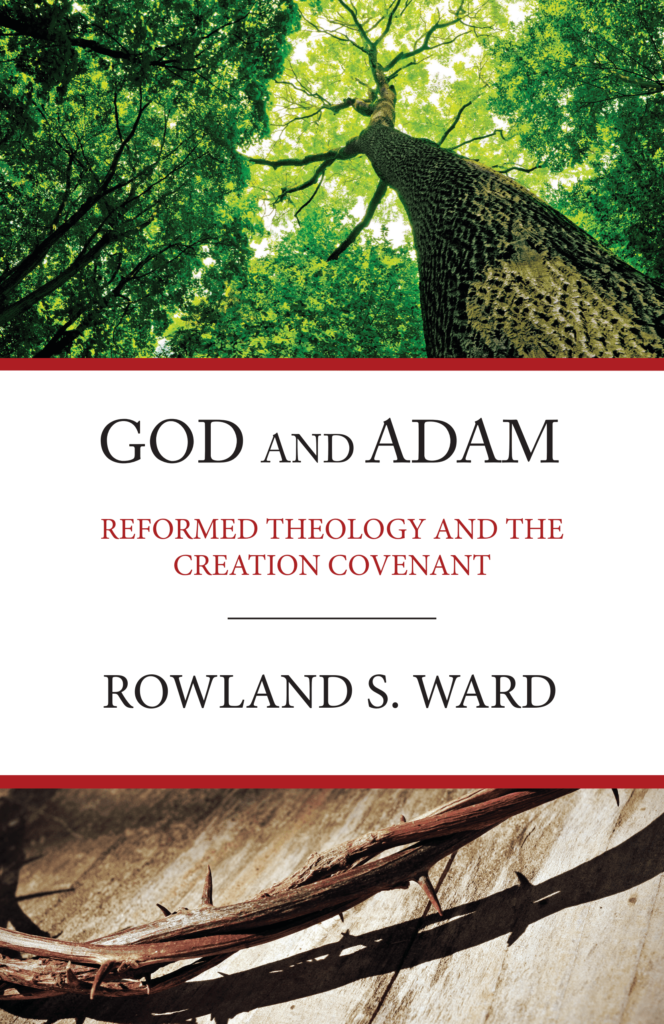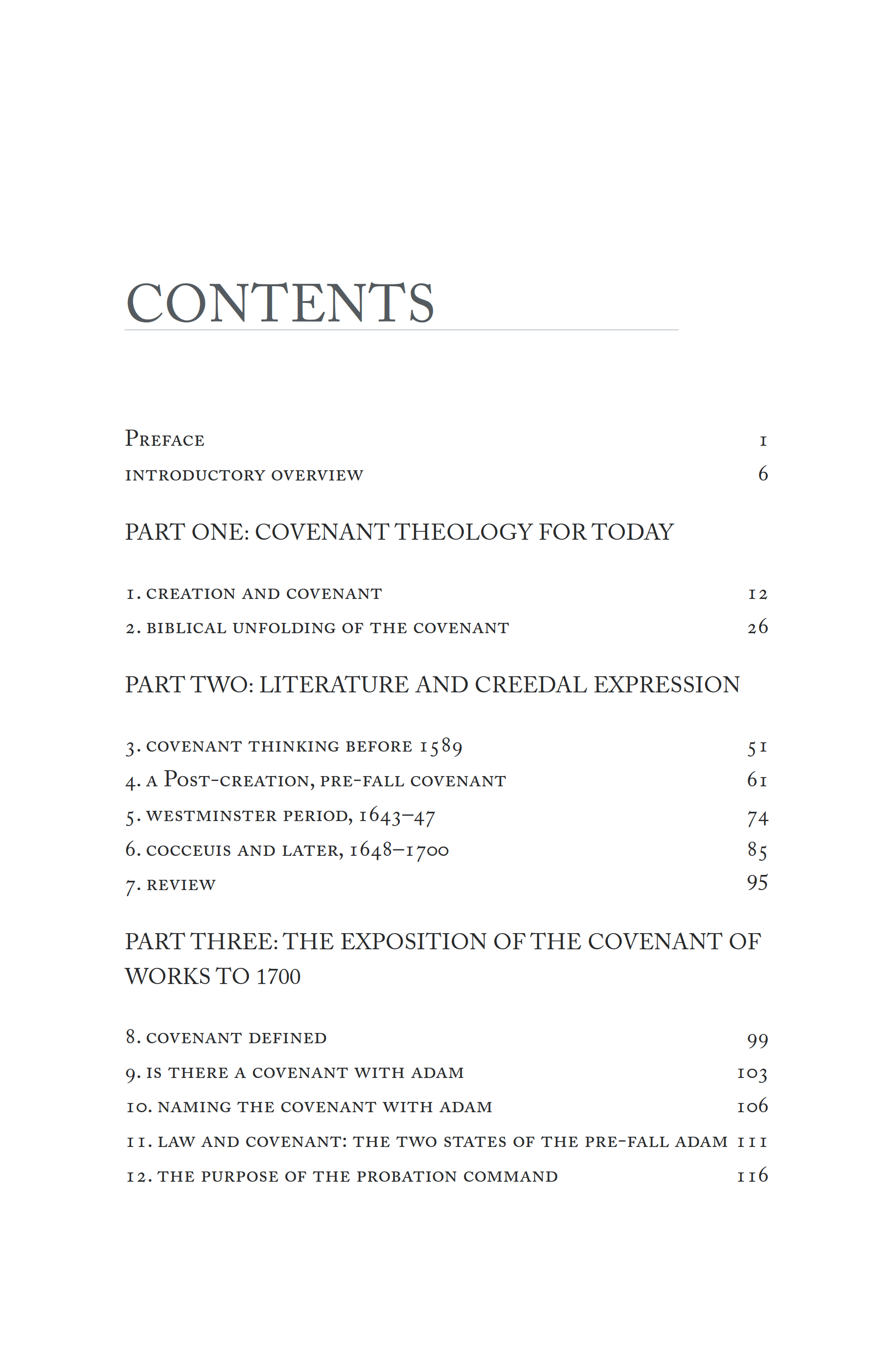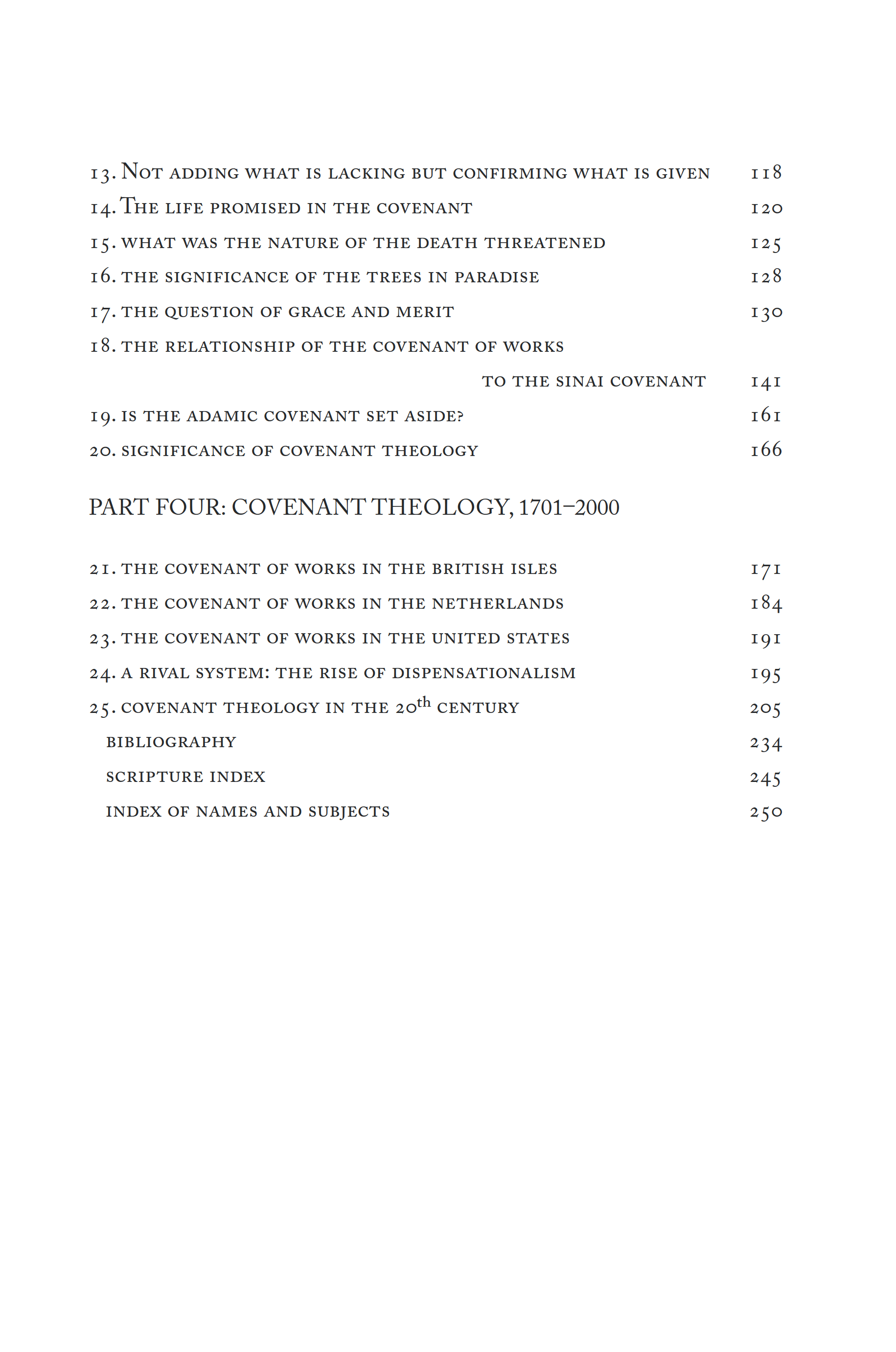Reformed Theology and the Creation Covenant
LOADING IMAGES
Size: 140.00 x 216.00 mm
Pages: 262
Size: 5.50 x 8.50 in
Pages: 262
Size: 5.50 x 8.50 in
Pages: 262
Pages: 262
Reformed churches have always been interested in the covenant idea, first the covenant of grace in Christ, but also a covenant with Adam before sin, commonly called the covenant of works. But what the covenant of works really meant in the 17th century, when it became standard orthodoxy, is often very poorly understood today. That ignorance has contributed to modifications which are not always for the better.
Selected Endorsements:
- “I have assigned Rowland Ward’s book “God and Adam: Reformed Theology and the Creation Covenant” for almost two decades in my Covenant Theology courses at Reformed Theological Seminary. It is the best short survey of the history and development of Reformed opinion on the topic and gets the student up to speed quickly. I am delighted to see it back in print again.”
- Dr. Ligon Duncan | Chancellor/CEO of Reformed Theological Seminary and the John E. Richards Professor of Systematic and Historical Theology.
- “As Ward shows, covenant theology has been a mainstay of reformed theology for over 400 years. It displays the unity of the Bible, shows the depth of the work of Christ and clarifies the relationship of redemption to creation. Yet Covenant theology is often misunderstood or entirely forgotten in evangelical and reformed circles. God and Adam performs a great service by clarifying these key doctrines, and showing how they have been understood in Reformed theology over the centuries — including some of the variations and debates. Ward’s comprehensive knowledge of historical reformed theology, his insightful analysis, and his economic writing makes this a sure guide and an excellent source book. I hope its republication will help to keep alive the flame of classic covenant theology.”
- Dr. John McClean | Vice Principal and Lecturer in Systematic Theology at Christ College, Sydney, Australia
- "When Rowland Ward’s God and Adam first appeared, it made an excellent contribution to Reformed literature. Ward uncovered a wealth of material from the history of Reformed thought and provided thoughtful analysis of many important debates. The revision and expansion of this work in a new edition is a gift to the church. As Ward helps us see, a theologian’s view of God’s original relationship with Adam is inevitably intertwined with his view of Christ’s work and the salvation of his people."
- Dr. David VanDrunen | Robert B. Strimple Professor of Systematic Theology and Christian Ethics at Westminster Seminary California
- "I am delighted to see the republication of this judicious and thoughtful book, which packs an unbelievable amount of information into its relatively few pages! Whether one agrees with all of Rowland Ward’s conclusions or not, his balanced account of the contours of Reformed Covenant Theology will be invaluable to anyone thinking through these key issues for biblical and systematic theology."
- Dr. Gary Millar | Principal of Queensland Theological College, Brisbane, Australia
- “It is with great pleasure I commend to you God and Adam by Rowland S. Ward. The book helps its readers understand the various issues and nuanced formulations of the covenant of works in the literature of Reformed theology primarily in the seventeenth century. It will be of great assistance to those interested in post-Reformation Reformed dogmatics.”
- Dr. Richard Barcellos | Associate Professor of Exegetical Theology at IRBS Theological Seminary and Pastor of Grace Reformed Baptist Church, Palmdale, CA
Chris Ross on Goodreads wrote:I don't think I understood Covenant Theology until I read this. Extremely readable: a model of readability, making difficult (for me) concepts easy to understand).
Great book outlining the particulars and nuances of Covenant Theology (CT). The primary thesis of the book is that both Adam and Christ are 'federal heads' representing humanity. Adam sinned and disobeyed God resulting in a fallen nature, enmity toward God and a predisposition to sin rather than obedience. The Incarnation was necessary that Jesus, the Messiah/Christ would fulfill the 'Covenant of Works' which Adam failed to do, 'Do this and live'. That is, to obey the Covenant stipulations of God. Christ conversely, fully obeyed the stipulations of the Covenant of Works on behalf of the elect providing the righteousness whereby we may stand before God. Further, Christ paid the penalty for our sin, thus we have the imputation of the active and passive obedience of Christ to the elect.
This is a great book of 233 pages (of content) exploring and advocating for the federal headship of both Adam and Christ.
Ward outlines an overview of CT in simple terms. The meat of the book is the examination of CT, and its nuances from the 1500, pre-Westminster through to the New Perspectives on Paul and nascent New Covenant Theology. In brief mini-chapters Ward examined and contrasts various understanding of the interpretations of CT and advocates for a more traditional reformed understanding of CT.
The various comparisons of the confessions were beneficial along with the plethora of quotes relating to CT. The Great strength of the book is the ultimate focus on the 'double imputation of the active and passive obedience of Christ'.











